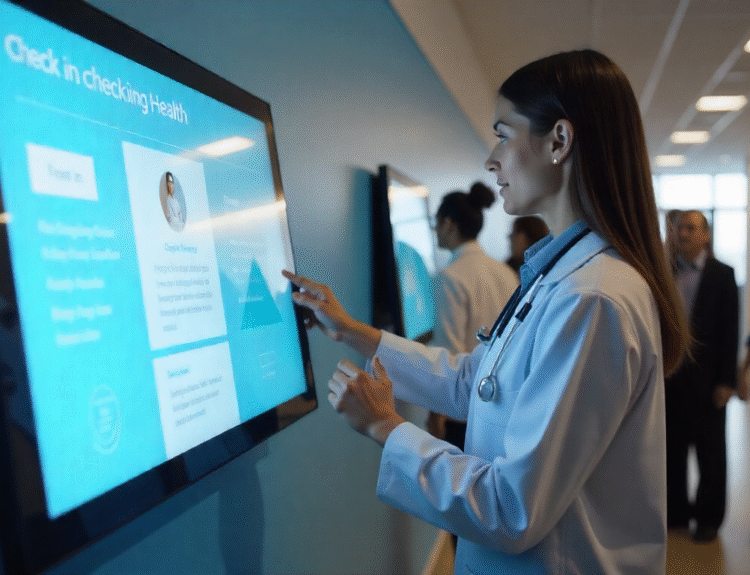M Tech in Mechanical Engineering is a higher study program for students who love machines, designs, and new technology. It is usually a 2-year course that helps learners go deeper into subjects like design, manufacturing, robotics, energy, and thermal systems. Many students choose this course after completing a bachelor’s degree in mechanical engineering. The program is not only about books but also about projects, research, and practical training. It teaches students how to solve real industry problems and bring new ideas. If you are someone who wants to grow your career in technical fields or research, then M Tech in Mechanical Engineering can be a great option. It also opens doors for jobs in industries, government sectors, or even teaching. Many universities and institutes in India and abroad offer this course with different specializations.
M Tech in Mechanical Engineering also gives you a chance to focus on a subject you love the most. Some students pick robotics, some like thermal systems, while others choose design or manufacturing. The best part of this course is the balance between theory and practice. Students do classroom learning and also spend time in labs and projects. This way, they gain both knowledge and skills, which industries really need. Many institutes also support students with research work where they can publish papers or build new models. Having this degree also makes students eligible for higher studies like PhD if they want to continue in academics. For job seekers, the course builds strong skills for sectors like automobile, aerospace, energy, and robotics. Some companies also prefer M Tech students for research and development roles. So, it is not just about studying, it is about building a strong career path for the future.
What is M Tech in Mechanical Engineering?
M Tech in Mechanical Engineering is a two-year postgraduate course that allows students to go deeper into the field of mechanical engineering. It focuses on advanced topics like design, thermal systems, robotics, manufacturing, and automation. Students learn both theoretical concepts and practical skills through classroom lectures, lab sessions, and real-world projects. This course helps learners solve industry problems, develop new technologies, and work on innovative designs. Many universities and colleges offer M Tech in Mechanical Engineering with different specializations to match students’ interests. The program also encourages research work and technical projects, preparing students for careers in R&D, industries, or higher studies like PhD. Completing this course enhances knowledge, technical skills, and job prospects, making students more competitive in engineering and technology sectors where innovation and expertise are highly valued.
Why Choose M Tech in Mechanical Engineering After B.Tech?
Choosing M Tech in Mechanical Engineering after B.Tech gives students an opportunity to specialize in areas they are passionate about, such as robotics, design, or energy systems. This program provides a mix of advanced theory, practical labs, and research projects that help students gain hands-on experience and industry-ready skills. It also strengthens problem-solving abilities and technical knowledge that employers value. Many students choose this path to improve career prospects, enter research and development, or pursue teaching. The degree also opens doors to higher education like PhD programs for those who want to explore academic careers. Additionally, completing M Tech in Mechanical Engineering can increase earning potential, provide better job roles, and create opportunities in multiple sectors like automobile, aerospace, energy, and robotics. Overall, it is a strong choice for growth in technical and professional fields.
Top Specializations in M Tech in Mechanical Engineering
M Tech in Mechanical Engineering offers several specializations for students who want to focus on specific areas of interest. Common specializations include Design Engineering, Manufacturing, Thermal Engineering, Robotics, Mechatronics, and Automobile Engineering. Each specialization provides targeted knowledge and skills that are important for modern industries. For example, Design Engineering focuses on creating new machines and systems, while Thermal Engineering deals with energy systems, heating, and cooling solutions. Robotics and Mechatronics combine mechanical systems with electronics and automation technology. Manufacturing specialization teaches students about modern production techniques and smart factories. Choosing the right specialization allows students to build expertise, work on focused projects, and become more competitive for specific job roles in their chosen field. Specializations also guide students toward research areas and help them prepare for future career growth.
Eligibility and Admission Process for M Tech in Mechanical Engineering
To pursue M Tech in Mechanical Engineering, students must have a B.Tech or BE degree in Mechanical Engineering or a related field. Many top institutes require students to appear for entrance exams like GATE in India, which helps in selecting meritorious candidates. Some colleges also consider direct admission based on academic performance or interviews. The application process usually includes submitting academic records, entrance exam scores, and other required documents. Shortlisted candidates may need to attend counseling sessions or interviews depending on the institute. Meeting eligibility criteria ensures that students are prepared for advanced courses and research work in mechanical engineering. Proper guidance and preparation for the admission process help students secure seats in reputed colleges, enhancing their chances of learning in high-quality academic environments.
Subjects and Semester Plan of M Tech in Mechanical Engineering
The M Tech in Mechanical Engineering program is usually divided into four semesters over two years. The first semesters focus on core subjects like advanced thermodynamics, fluid mechanics, material science, and machine design. Later semesters offer electives in specialized areas like robotics, CAD/CAM, energy systems, or manufacturing processes. Students also spend significant time in laboratories and workshops, gaining practical knowledge. A major project or thesis is typically completed in the final semester, helping students apply theoretical knowledge to real-world problems. The course design balances learning, research, and hands-on experience. This structured approach allows students to build technical skills, improve problem-solving abilities, and gain experience in their chosen field. Proper planning of semesters ensures students get comprehensive exposure to mechanical engineering concepts and applications.
Skills You Will Learn During M Tech in Mechanical Engineering
During M Tech in Mechanical Engineering, students gain both technical and soft skills needed for professional success. They learn advanced concepts in design, thermal systems, robotics, and manufacturing processes. Lab work and projects enhance practical knowledge and problem-solving skills. Students also develop research skills by working on projects, writing reports, and analyzing data. Communication and teamwork skills are improved through group projects, presentations, and collaboration with peers and faculty. Time management, critical thinking, and decision-making are also strengthened during project work and internships. These skills make graduates industry-ready, preparing them for roles in research, design, production, and management. The combination of technical expertise and professional skills helps students stand out in competitive job markets and pursue growth in both industry and academia.
Career Opportunities After M Tech in Mechanical Engineering
Completing M Tech in Mechanical Engineering opens many career opportunities in various sectors. Graduates can work in research and development, design engineering, manufacturing, thermal and energy industries, robotics, and automation. Some choose to work in the automobile, aerospace, or defense sectors. The degree also allows students to take teaching or academic positions, or pursue PhD programs for advanced research. Skilled M Tech graduates are preferred for technical roles in companies that require innovation, problem-solving, and high-level expertise. Some students also start their own businesses or work as consultants in engineering projects. The course equips students with both theoretical knowledge and practical experience, making them versatile professionals who can adapt to different roles and industries, enhancing their career growth and earning potential.
Salary Scope After M Tech in Mechanical Engineering
The salary scope after M Tech in Mechanical Engineering varies depending on specialization, experience, and job profile. Fresh graduates may start with a decent salary in research, design, or manufacturing roles. As skills and experience grow, professionals can earn higher packages in industries like automobile, energy, robotics, and aerospace. Positions in research and development, project management, or technical consultancy often offer better pay. Public sector jobs and academic positions may provide stable income along with benefits. International opportunities also exist for skilled graduates, sometimes with higher compensation. The degree improves career prospects by making students eligible for advanced positions, increasing responsibility, and providing opportunities to work on innovative projects. Overall, M Tech in Mechanical Engineering provides both financial growth and professional development for dedicated learners.
Future Research and Higher Study Options After M Tech in Mechanical Engineering
After completing M Tech in Mechanical Engineering, students can explore higher studies and research opportunities. Pursuing a PhD allows in-depth study in areas like robotics, design, thermal systems, or energy technology. Many universities and institutes encourage publishing research papers and working on innovative projects. Advanced certifications and international programs can also enhance knowledge and skills. Research work not only improves expertise but also increases employability in high-tech industries and academic careers. Students interested in teaching can join universities or coaching institutes, sharing their knowledge with future engineers. Continuous learning through workshops, online courses, and seminars keeps professionals updated with new technologies. The degree thus acts as a gateway to lifelong learning, career growth, and meaningful contributions in engineering and technology.
Final Thoughts on M Tech in Mechanical Engineering
M Tech in Mechanical Engineering is a great course for students who love machines and technology. It helps learners gain knowledge, skills, and experience for industry or research work. Choosing the right specialization and working on projects makes the course more exciting and useful.
This degree also opens many job opportunities and higher study options. With practical skills and knowledge, students can build a strong career and grow in technical fields. It is not just about learning from books but also about doing projects and solving real problems.
FAQs
Q: What is the duration of M Tech in Mechanical Engineering?
A: It usually takes 2 years to complete, divided into 4 semesters.
Q: Can I do M Tech in Mechanical Engineering after any engineering degree?
A: No, you need a B.Tech or BE in Mechanical Engineering or a related field.
Q: Are there entrance exams for M Tech in Mechanical Engineering?
A: Yes, many colleges require exams like GATE for admission.
Q: What career options are available after M Tech in Mechanical Engineering?
A: Jobs in R&D, design, manufacturing, robotics, energy sectors, and teaching are common.
Q: Can I pursue higher studies after M Tech in Mechanical Engineering?
A: Yes, you can do a PhD or research programs in specialized areas.





